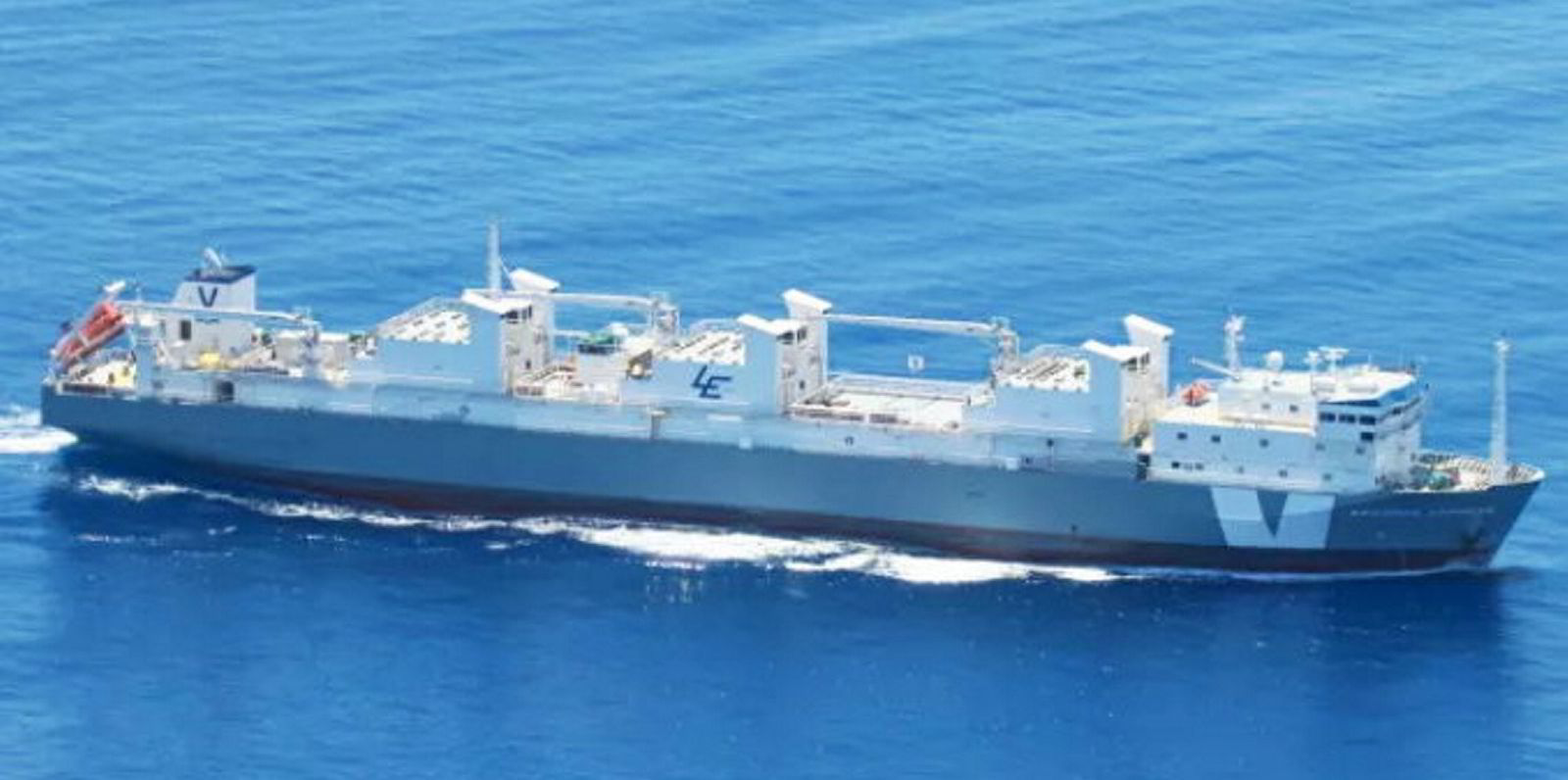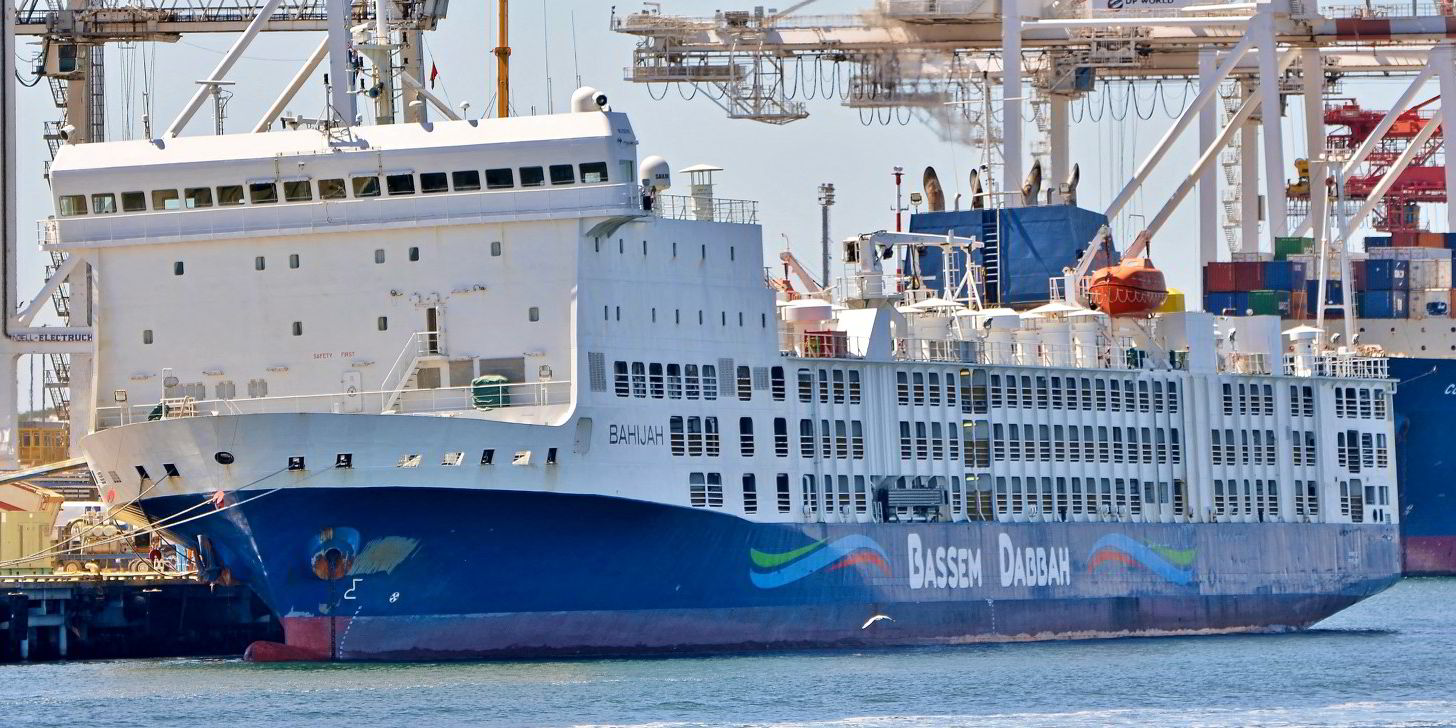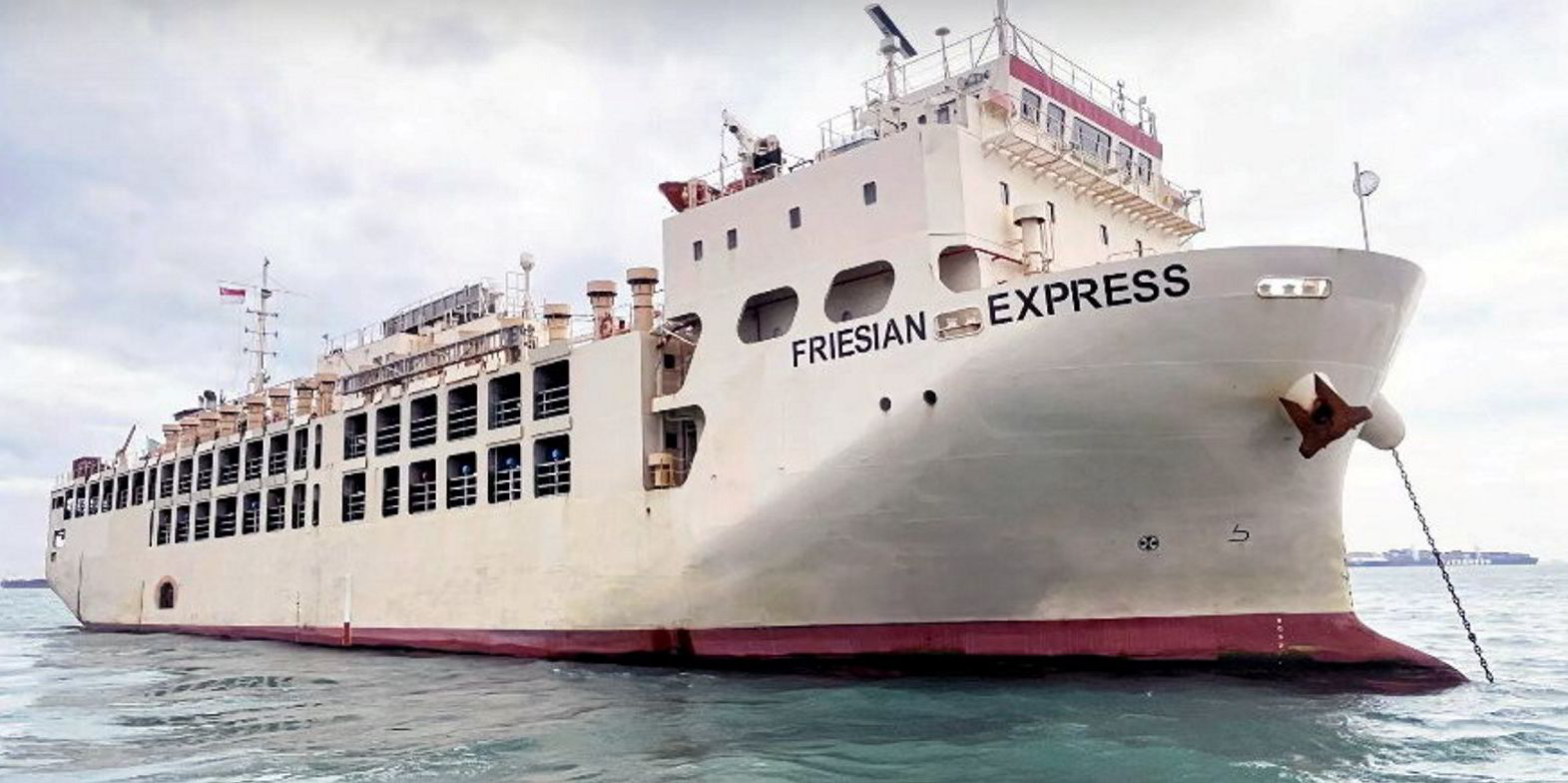A disease outbreak has reportedly killed at least 100 cattle travelling on a Vroon livestock carrier between Australia and Indonesia.
A commercial exporter using the 5,600-dwt Brahman Express (built 2002) informed Australia’s government of an “incident involving cattle deaths”, the agriculture department said in a statement.
“Prior to departure, the department undertook pre-export inspections to ensure that the livestock met requirements under the Export Control Act 2020 and importing-country requirements,” the Department of Agriculture, Fisheries and Forestry (DAFF) said.
“There is no suggestion that exotic animal disease is involved. We are investigating the incident as per normal procedures and as a matter of priority,” the statement added.
In a separate statement, the Australian Livestock Exporters Council (ALEC) confirmed the incident which occurred during a discharge from the Luxembourg-flagged vessel in Indonesia on 24 March but said the number of deaths was yet to be confirmed.
“Initial assumptions are that this is a case of botulism, with the affected animals coming from a single property. Efforts are underway to treat remaining animals that may be affected,” ALEC said.
Prior to departure, all livestock loaded onto the vessel are said to have been “assessed to be in good health and fit to load and were inspected by veterinarians”.
“DAFF is engaging with Indonesian officials to keep them informed of the issue. Australia is confident that there is no evidence of an exotic disease and that our Animal Health Status remains unchanged,” ALEC said.
“Indonesia is Australia’s most important trading partner for live cattle, and it is important that we work closely and transparently with them as we work through this issue,” the trade body added.
This latest incident comes just weeks after another livestock carrier, which was due to transit the Red Sea, was forced to turn back due to security risks.
The incident drew international criticism when about 16,000 animals were stuck on board the vessel for several weeks before being returned to Australia where they were discharged.
The vessel involved, the 7,850-dwt Bahijah (built 2010), later exported a consignment of livestock to Israel, but this time opted not to travel via the Red Sea.





